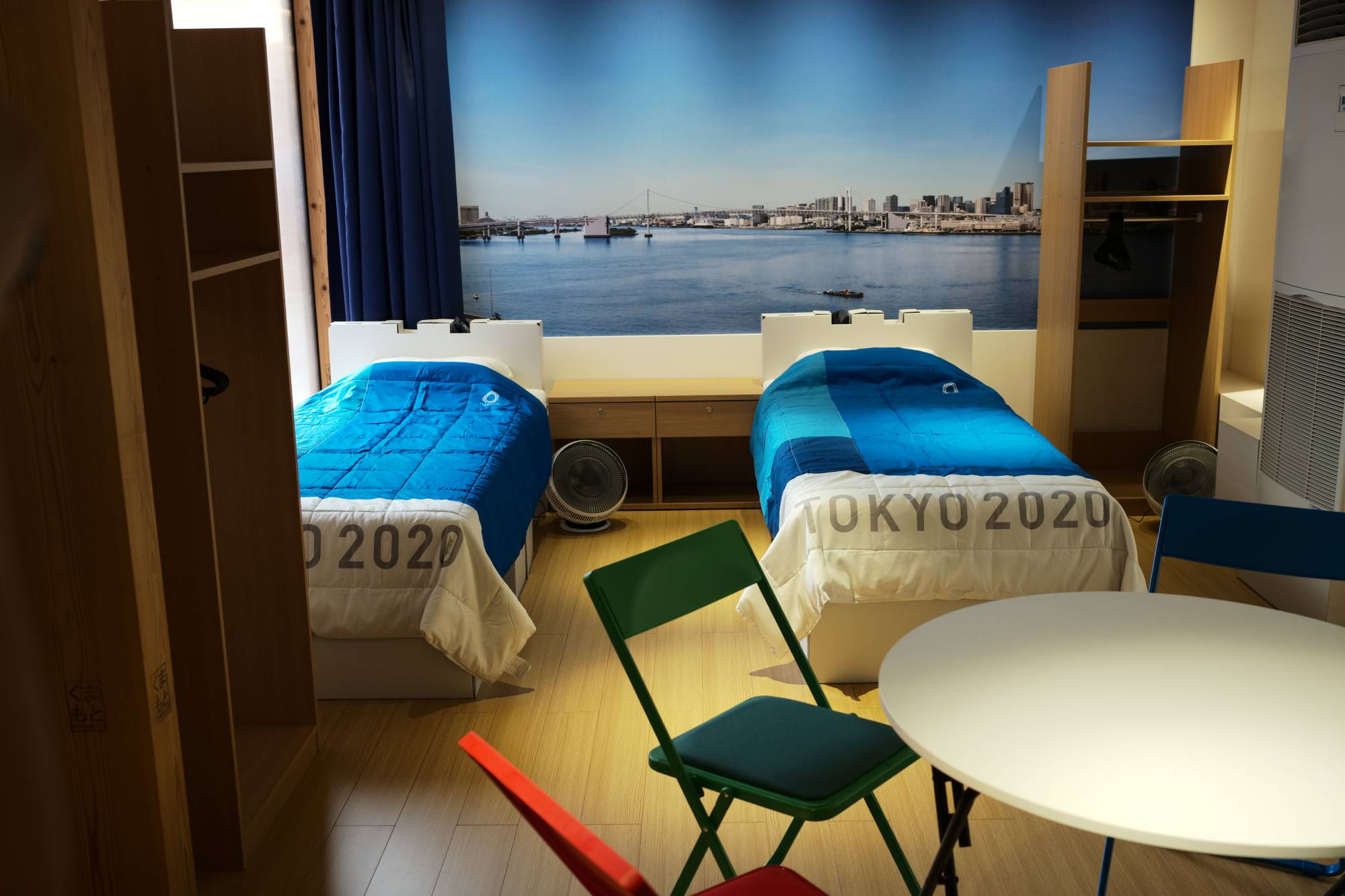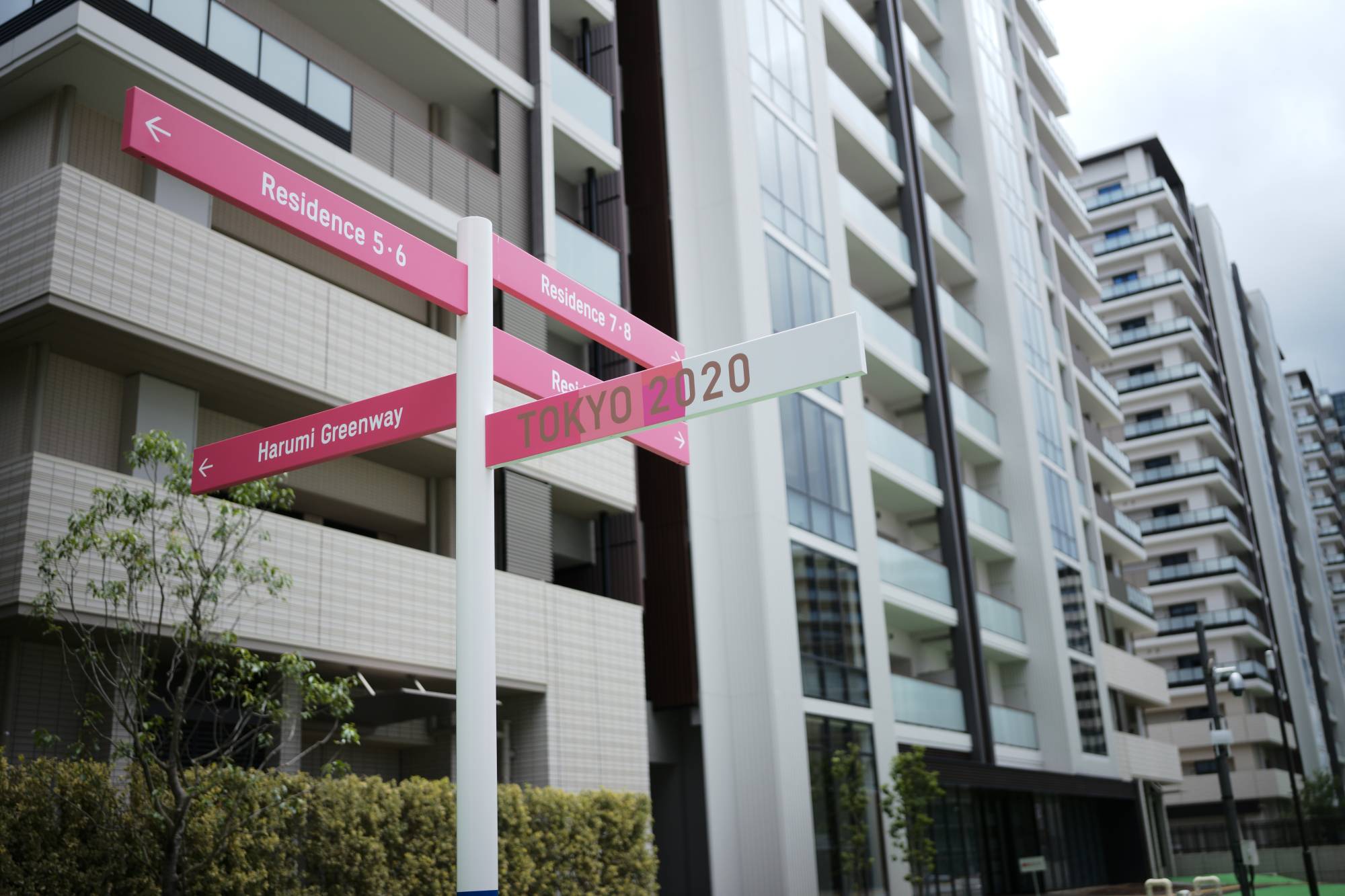What began as a trickle of infections among athletes and staff has turned into a steady stream just days before the opening ceremony of the Tokyo Games, with COVID-19 threatening to derail the competition schedule and casting doubt on the ability of organizers to handle the situation if it continues to worsen.
Not only is it unclear whether athletes who test positive will be allowed to compete after they recover, the stark discrepancy between protocols for close contacts among participants in the Games and those for the rest of Japan is drawing criticism.
Organizers insist the “bubble” meant to protect residents from athletes, staff and other people connected to the Games — and vice versa — remains intact, even as the list of cases continues to grow with less than two days until the opening ceremony on Friday evening.
“There will be nobody who tests PCR positive who will be on the field of play,” Brian McCloskey, chair of the International Olympic Committee’s panel in charge of coronavirus countermeasures during the Tokyo Games, said at a news conference Monday, referring to polymerase chain reaction tests.
As of Wednesday, 75 cases of COVID-19 had been reported among athletes and staff, including more recently a volunteer — the first since organizers began compiling figures on July 1.
The Chilean Olympic Committee announced Wednesday that one of its athletes — female taekwondo competitor Fernanda Aguirre — will forfeit after testing positive, the first athlete to withdraw from the Games due to the virus.

Infections have been detected among participants before their scheduled departure from their home country, after they landed in Japan and after they arrived at the Olympic Village, a 44-hectare site on Tokyo’s Harumi Waterfront where thousands of athletes will spend most of their time.
“What we’re seeing is what we expected to see,” McCloskey said. “The numbers we’re seeing are actually extremely low. They’re probably lower than we expected to see, if anything.”
Multiple athletes have become infected but even more have been deemed close contacts, which could impact their ability to compete.
Once an athlete is deemed a close contact, they’re required to take PCR tests daily, eat and travel alone and stay in a single bedroom, which they can only leave to train or compete if they test negative within six hours before the session.
“Only after obtaining a negative result will they be allowed to compete,” the Tokyo Organising Committee said in a statement.
According to COVID-19 test centers in Japan, those deemed to have come in close contact with an infected person need to isolate for two weeks after testing negative.



Athletes who test positive but don’t need treatment will be sent to a temporary isolation facility — a repurposed hospital — where they will isolate for 10 days, with the possibility of being released a few days early.
Based on current protocols, there are three scenarios in which the possibility of infection can be detected in an athlete: via regular screening, the athlete visibly falling ill or showing symptoms or being deemed a close contact to someone who has already tested positive.
If and when that happens, they undergo an antigen test, and a sample of that is used to conduct a PCR test in tandem. Finally, a nasopharyngeal PCR test — which is considered the gold standard for confirming COVID-19 infections — is administered for a three-layer confirmation that the athlete has in fact caught the virus.
Before the test results come back, organizers said they will begin retracing the individual’s possible contacts through daily itineraries and schedules compiled ahead of time by the coronavirus liaison officer of each Olympic delegation.
If the nasopharyngeal PCR test yields a positive result, the case is then handed off to local authorities.
In a time of both misinformation and too much information, quality journalism is more crucial than ever.
By subscribing, you can help us get the story right.
SUBSCRIBE NOW


